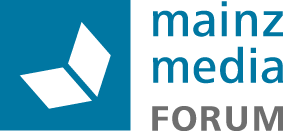 27.04.2012: The Internet is distinctive because it allows private individuals to directly communicate with each other, and also expands the ability of the media to communicate in many different forms. No longer is there such a clear distinction between newspapers, radio, and television. In some respects, all three media have similar elements (e.g., even newspapers have websites and offer video and other media more associated with radio or television). However, both public and private sources are threatening Internet freedom. Governmental restrictions come in various forms, including the Stop Online Piracy Act, and various attempts to limit or control the Internet. Private restrictions come in the form of user agreements and other attempts to limit Internet content. This forum will examine the threats to Internet freedom that flow from these private and public sources.
27.04.2012: The Internet is distinctive because it allows private individuals to directly communicate with each other, and also expands the ability of the media to communicate in many different forms. No longer is there such a clear distinction between newspapers, radio, and television. In some respects, all three media have similar elements (e.g., even newspapers have websites and offer video and other media more associated with radio or television). However, both public and private sources are threatening Internet freedom. Governmental restrictions come in various forms, including the Stop Online Piracy Act, and various attempts to limit or control the Internet. Private restrictions come in the form of user agreements and other attempts to limit Internet content. This forum will examine the threats to Internet freedom that flow from these private and public sources.
im RW 2 des Fachbereichs Rechts- und Wirtschaftswissenschaften der JGU
Begrüßung
Professor Dr. Dieter Dörr
Direktor des Mainzer Medieninstituts
Podiumsdiskussion
Professor Russell L. Weaver
Professor of Law and Distinguished University Scholar, Louis D. Brandeis School of Law, Louisville, USA
Professor Dr. Udo Fink
Lehrstuhl für Öffentliches Recht, Europarecht, Völkerrecht und Internationales Wirtschaftsrecht an der Johannes Gutenberg-Universität Mainz, stellvertretender Direktor des Mainzer Medieninstituts
Moderation
Dr. Tobias O. Keber
Akademischer Rat, Lehrstuhl für Öffentliches Recht, Europarecht, Völkerrecht und Internationales Wirtschaftsrecht (Professor Dr. Udo Fink) an der Johannes Gutenberg-Universität Mainz
 Kooperationspartner
Kooperationspartner

 Weiterführende Links
Weiterführende Links
» Website des Mainzer Medieninstituts
